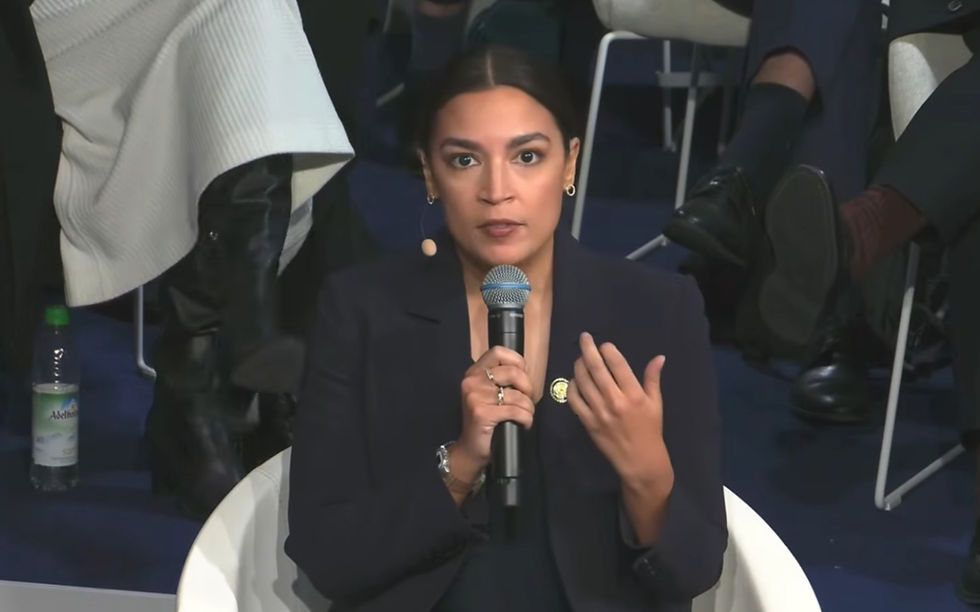The Epstein Vote Should Be a Wake-up Call to Foreign Leaders: President Trump Is Not Normal
- john raymond
- Nov 20, 2025
- 3 min read

The recent congressional discharge petition on the Epstein matter is more than domestic theater—it is an unmistakable signal to foreign governments that President Trump cannot be treated like his predecessors.
Many foreign leaders—from Mark Rutte to others—appear to assume they can engage him as a semi-conventional head of state. That assumption is dangerously wrong. They must instead regard him under the paradigm of the Byzantine traitor-general: a figure whose primary goal is personal survival, who will exploit alliance structures to favor the enemy rather than safeguard the alliance.
When a U.S. president becomes the conduit for a foreign power’s strategic objectives the alliance dynamics shift fundamentally. Foreign leaders must recognize that the usual protocols of engagement, built on shared institutionality and alignment of interests, no longer apply.
In the case of President Trump, the question is not simply erratic behavior, but structural compromise. For them, every handshake, every memorandum, every trip to Washington must be re-evaluated through the lens of a regime whose internal logic diverges from the alliance’s.
Evidence + Argument
The parliamentary defection as a structural signal. The Epstein vote succeeded because a significant number of members of Congress openly defied President Trump’s leadership. In a conventional presidency, such defections are rare. Here, the vote marks a diminishment of the president’s institutional leverage. For foreign states, this means the assumption of American consistency—across executives, agencies, Congress—is a mirage.
The formulation of foreign policy as transactional and personalized. Since the outset of his second term, President Trump has self-positioned as the arbiter of bilateral “peace” deals, most notably in the Ukraine–Russia conflict, where proposals have emphasised personal mediation (for example a so-called “Peace Council” chaired by him) rather than institutional guarantees. This framing indicates that the presidency is functioning less as steward of the U.S.-led order and more as broker of his own leverage network.
The alignment with the Kremlin interest set. Applying the Raymond Method:
Pillar One (Regime Security): Russia’s long-term goals—recognition of territorial claims, sanctions relief, a weakened Ukraine and a fractured NATO—are embedded in many of the pieces forwarded by the Trump plan.
Pillar Two (Asymmetric Warfare): The latest peace plan is tool-shaped to dismantle Western cohesion, showcase fatigue with supporting Ukraine, and portray the United States stepping away from the front line—exactly what Moscow hopes for.
Pillar Three (Byzantine Traitor-General): The president of a treaty ally signalling the possibility of recognizing the enemy’s gains, capping the ally’s army, denying membership in the alliance, and self-appointing arbiter of a new order — that fits the traitor-general pattern: an internal figure whose decisions serve the external adversary’s objectives while preserving plausible deniability.
Implications for Europe and NATO. Many European leaders assume they can deal with President Trump in conventional ways—diplomatic protocol, alliance summits, incremental treaty renewals. But if his logic is not conventional, their institutional anchors (NATO, EU, U.S. bilateral treaties) may not guarantee reliability. Consequently:
Assume less about long-term U.S. weapons programs initiated by this administration.
Don’t depend solely on U.S. executive assurances; build guardrails via European-only structures.
Treat U.S. proposals from this administration not as final-state architectures but as underhanded messaging directed at the alliance.
Foreign leaders must recalibrate. The era when the U.S. president could be treated as “just another partner” in the Euro-Atlantic order is over—at least for the present term. Instead they face a dynamic where one leader may be simultaneously the alliance guarantor, the adversary’s facilitator, and the eruption point of internal U.S. instability.
Recognizing that allows Europe to respond strategically: not merely by diplomacy but by hedging, by building independent institutional capacities, and by resisting norms that the U.S. might seek to reshape unilaterally under transactional logic.
The Implications
European capitals should fast-track defense, intelligence and industrial integration without waiting for the U.S. to lead.
NATO’s collective defense items (artillery, air defense, maritime deterrence) must be funded and coordinated with or without Washington.
Ukraine’s strategy must assume that U.S. leadership can pivot overnight and therefore should diversify: deepening ties not just with the U.S., but with a broad European base, and embedding security guarantees in treaty frameworks that transcend a single presidency.
President Trump is not just erratic. He represents, in this strategic framing, a systemic pivot away from the alliance-centered American order toward a personalized, transactional architecture in which the Kremlin’s interests are advanced, not resisted.
For any foreign leader hoping to maintain Europe’s security architecture, recognizing this is the first step. Denying it or treating Trump as “just another U.S. president” opens the door to strategic surprise.
The Epstein vote may have been a domestic uproar—but it should also be a continental alarm. Trump is not an alliance man, but a Russian-backed, self-absorbed blackmailer. And nothing more.




Comments